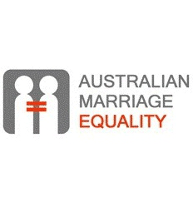 Australian drug and alcohol experts say allowing same-sex couples to marry will reduce levels of drug and alcohol misuse in the gay and lesbian community.
Australian drug and alcohol experts say allowing same-sex couples to marry will reduce levels of drug and alcohol misuse in the gay and lesbian community.
In a paper just released researchers from the National Drug and Alcohol Research Centre at the University of New South Wales called on the Government to allow same-sex marriages as a preventative health measure (Summary Here).
The researchers, led by Professor Ann Ritter, cite studies which shows a direct link between marriage equality and reduced alcohol and drug consumption. They also cite studies showing a link between marriage equality and reduced HIV infections as well as the positive health benefits of marriage generally.
According to the paper, “The best public-policy interventions are those which target a significant problem, have a clear rationale, are supported by research evidence, are least costly to implement and have strong community support. Legalising gay marriage as an alcohol and drug policy response meets these criteria. It is now time to legalise gay marriage, as an important contribution to reducing alcohol and other drug harm in Australia.”
A summary and a copy of the researchers’ paper is included below.
Meanwhile, psychologists from across Australia concerned about the adverse mental impact of Australia’s ban on same-sex marriages, have formed a new group to research, lobby and advocate for marriage equality.
Spokesperson of Psychologists for Marriage Equality, Brisbane psychologist, Paul Martin, said,
“Both the American and Australian Psychological Associations have issued statements highlighting the damage marriage discrimination does to the mental health of same-sex attracted people.”
“We see our job as taking that message to legislators and the public alike.”
Another spokesperson for the group, Melbourne psychologist, Ben Callegari, said
“As psychologists we see the damage done by prejudice and discrimination on a daily basis.”
“We know from international studies that including gay and lesbian couples in such a core institution as marriage has a beneficial impact on quality of life and mental health.”
In August 2011 the American Psychological Association issued a paper summarising research which shows marriage equality contributes to better mental health outcomes for gay and lesbian people.
In December the Australian Psychological Society issued a statement supporting the APA’s paper.
Psychologists for Marriage Equality is planning to lobby politicians in Canberra, encourage submissions to the proposed marriage equality Senate inquiry and is considering conducting its own research into the issue.
PME has a steering group of six psychologists from three states and is keen to hear from other psychologists who want to contribute to the marriage equality campaign.
For more information contact Paul Martin on 0419 0055 55, Ben Callegari on 0419 447 113, Ann Ritter on 02 9385 0236 or Alex Greenwich on 0421 316 335.
***
Research summary
Same-sex marriages may reduce alcohol and drug problems
The peer-reviewed editorial by Drug Policy Modelling Program scholars titled: ‘Why the alcohol and drug community should support gay marriage’ was published in the latest edition of the Drug and Alcohol Review (January 2012) and is attached for your information.
Legalisation of gay marriage is an effective public health strategy for addressing alcohol and other drug problems. It reduces stigma and discrimination, which are drivers of higher alcohol and other drugs problems in this population.
Our research has shown:
- Homosexuals, as a minority group, are at greater risk for developing alcohol and other drug problems. They may be up to twice as likely as heterosexuals to develop alcohol and other drug problems.
- One causal factor is stigma and discrimination. Reducing stigma and discrimination would reduce alcohol and other drug problems. Laws and policies can perpetuate stigma and discrimination.
- New research from the USA has identified that legitimising same-sex marriages can have a powerful and direct public health impact amongst the gay community. When the marriage act was changed to be limited to be between a man and a women, alcohol use disorders among homosexual people increased (with no parallel increase in States where there was no change).
- In sum, research evidence shows that recognition of same-sex marriage can contribute to reducing alcohol and other drug problems in Australia.
About DPMP
The Drug Policy Modelling Program (DPMP) was established in 2004 as a significant new endeavour to build applied drug policy research capacity in Australia. DPMP conducts rigorous research that provides independent, balanced, non-partisan policy analysis. The DPMP team are experts in drug policy research drawn from Universities across Australia who collaborate with a range of organisations and scholars nationally and internationally.
Led by Professor Ritter since its inception, DPMP is funded through a core grant from a philanthropic organisation (Colonial Foundation Trust) and receives research funds from other sources including NHMRC, ARC, and multiple government departments.
Details of the research conducted by DPMP including a monograph series available for download can be found on the website: www.dpmp.unsw.edu.au
For further information about DPMP or advice about drug policy issues please contact:
Prof Alison Ritter | Director, DPMP
Drug Policy Modelling Program | National Drug and Alcohol Research Centre
The University of New South Wales
Sydney NSW AUSTRALIA 2052
T: +61 2 9385 0236 | F: +61 2 9385 0222
E: alison.ritter@unsw.edu.au | W: www.dpmp.unsw.edu.au
Admin Assistant: Colleen Faes. T: (02) 9385 0186 E: c.faes@unsw.edu.au
